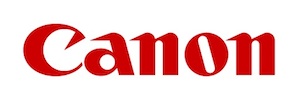Cary Sherburne: Hi. I'm Cary Sherburne, Senior Editor at WhatTheyThink.com and I'm here with Michelle Weir who is Publishing Segment Manager for HP. Welcome Michelle.
Michelle Weir: Hi.
Cary Sherburne: You know, the publishing industry is undergoing some pretty dramatic changes we see in the news every day, newspaper folding, magazines down, books -- all kinds of problems. But yet in the digital segment, there's a lot of growth. Maybe you can talk about some of the applications that digital enables and that are growth applications within the publishing industry.
Michelle Weir: Well, actually the publishing industry's transforming itself from something that was long-run books to now being content driven from the end-user's perspective. So self-publishing is having a very huge market play in this space and then the technologies around that, that enable that. So the ability to create a book online and then print the book to order using digital technologies is really driving a lot of that growth.
Cary Sherburne: And custom publishing and magazines?
Michelle Weir: Custom publishing. The ability to take content from multiple sources, mesh it all up, and print something that is only relevant to you, again, driving major change.
Cary Sherburne: And the other thing -- the other issue, and this is particularly true with books, is within the traditional supply chain there's huge waste -- 40 percent waste in the supply chain. So isn't that driving the publishers to look at new...?
Michelle Weir: Yes. And along with that environmental issues. So you have people who are pulping $100 million worth of inventory, that's a lot of capital. So they're looking at now print-to-order solutions, inventory management, virtual inventory. A lot of those are driving change in the market.
Cary Sherburne: And as I've talked to publishers across the country, they're saying why should we ever try to guess how many books we need to print. We should just be printing everything to order.
Michelle Weir: Well that is the end goal.
Cary Sherburne: Yeah.
Michelle Weir: There's some change that has to happen. I mean, point-of-sale solutions, things like that, driving back to inventory. Trigger points that would trigger then an order. Those things have to be in place, so there's a huge shift in the supply chain that has to happen there.
Cary Sherburne: Yeah. And what are some of the HP technologies that are helping to drive this change? Because you guys really are a leader in pushing a lot of this change through.
Michelle Weir: Well we have the solutions on a couple sides: solutions around content creation. We have solutions around mash-up of content from various sources. We have the digital print technologies that enable the book of one printing or the book of many or the virtual inventory. So we have quite a few different offerings for the various different segments.
Cary Sherburne: So for example, the mash-up offerings - what would those be?
Michelle Weir: Well we would have a cloud-based solution that would take content from multiple sources and then would allow the end-user to take chapters or content from various authors, mash it all up and create a publication that they would want to read.
Cary Sherburne: And this can be --
Michelle Weir: And then that would send to a digital printer for printing.
Cary Sherburne: So like a --
Michelle Weir: Or they can print it locally.
Cary Sherburne: -- HP Indigo or --?
Michelle Weir: HP Indigo.
Cary Sherburne: T300.
Michelle Weir: T300, right.
Cary Sherburne: And I'm also interested, when you think about the whole -- I mean, the creation part of it is really important; the front-end that you've been describing, but then also the back-end. So when you talk about the T300 coming online that's going to really dramatically change the options for publishers, right?
Michelle Weir: That's a game changer.
Cary Sherburne: Yeah.
Michelle Weir: That's especially game changer in trade and education, where they're now able to handle a backlist of over 750 copies on the T300 and education especially handled that contract requirement for 35 years and print 1,500 as opposed to 10,000 that they just end up throwing away.
Cary Sherburne: Yeah, sad. So and the other question is, with the T300, wouldn't you be able to integrate a lot more color into the book blocks?
Michelle Weir: Absolutely. Full color, especially for education.
Cary Sherburne: Yeah.
Michelle Weir: Yeah. I mean, trade is trade. Trade is going to still be black and white.
Cary Sherburne: Yeah.
Michelle Weir: But --
Cary Sherburne: And children's books.
Michelle Weir: Children's books, again, that's more of an Indigo application because children are used to really, really high quality, but for education books the T300 is perfect.
Cary Sherburne: Well that's great. Well thank you very much for sharing with us today.
Michelle Weir: You're welcome.

 Official camera partner of WhatTheyThink and the drupa daily.
Official camera partner of WhatTheyThink and the drupa daily. 












